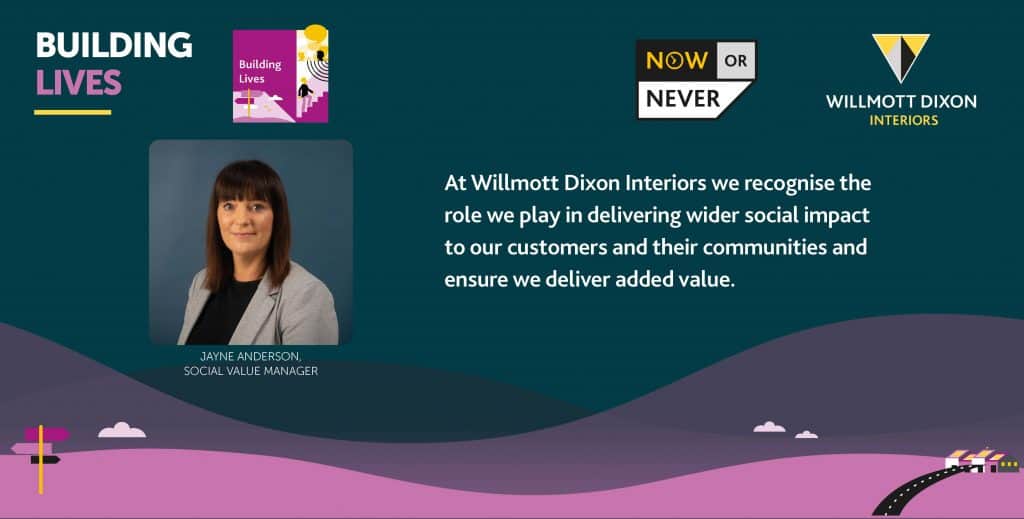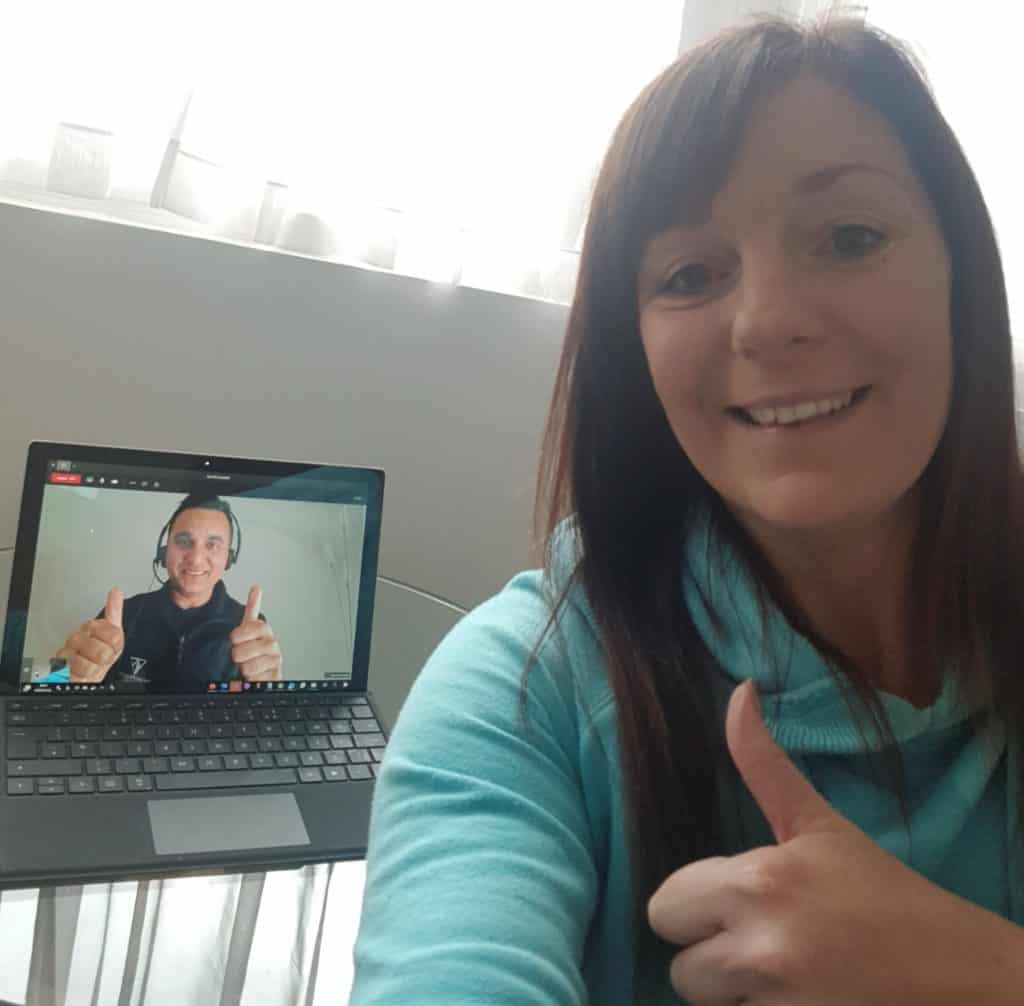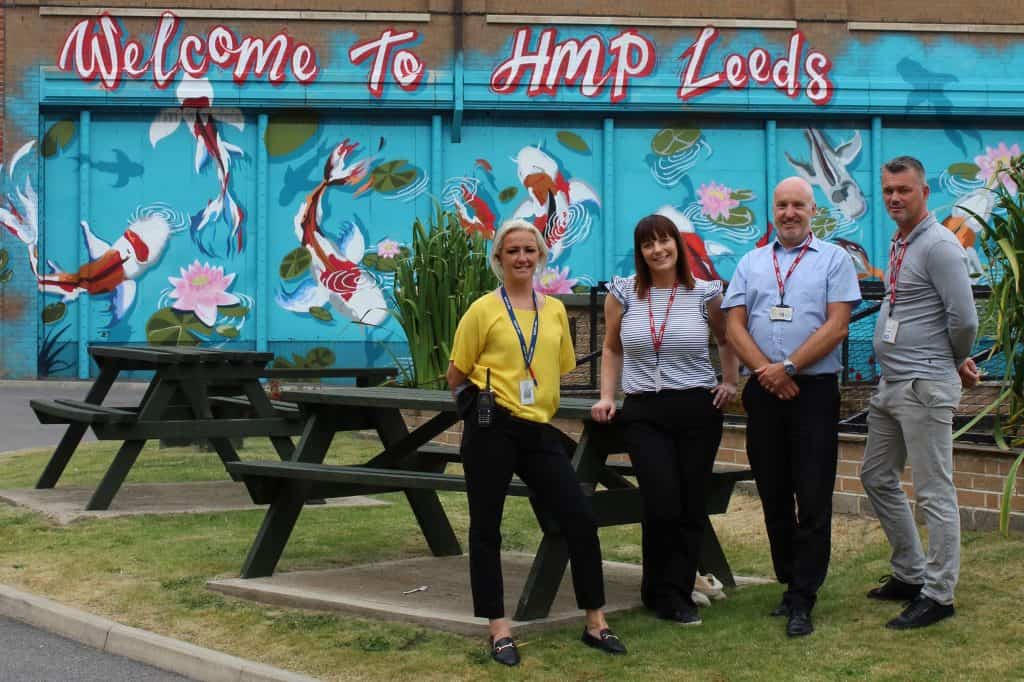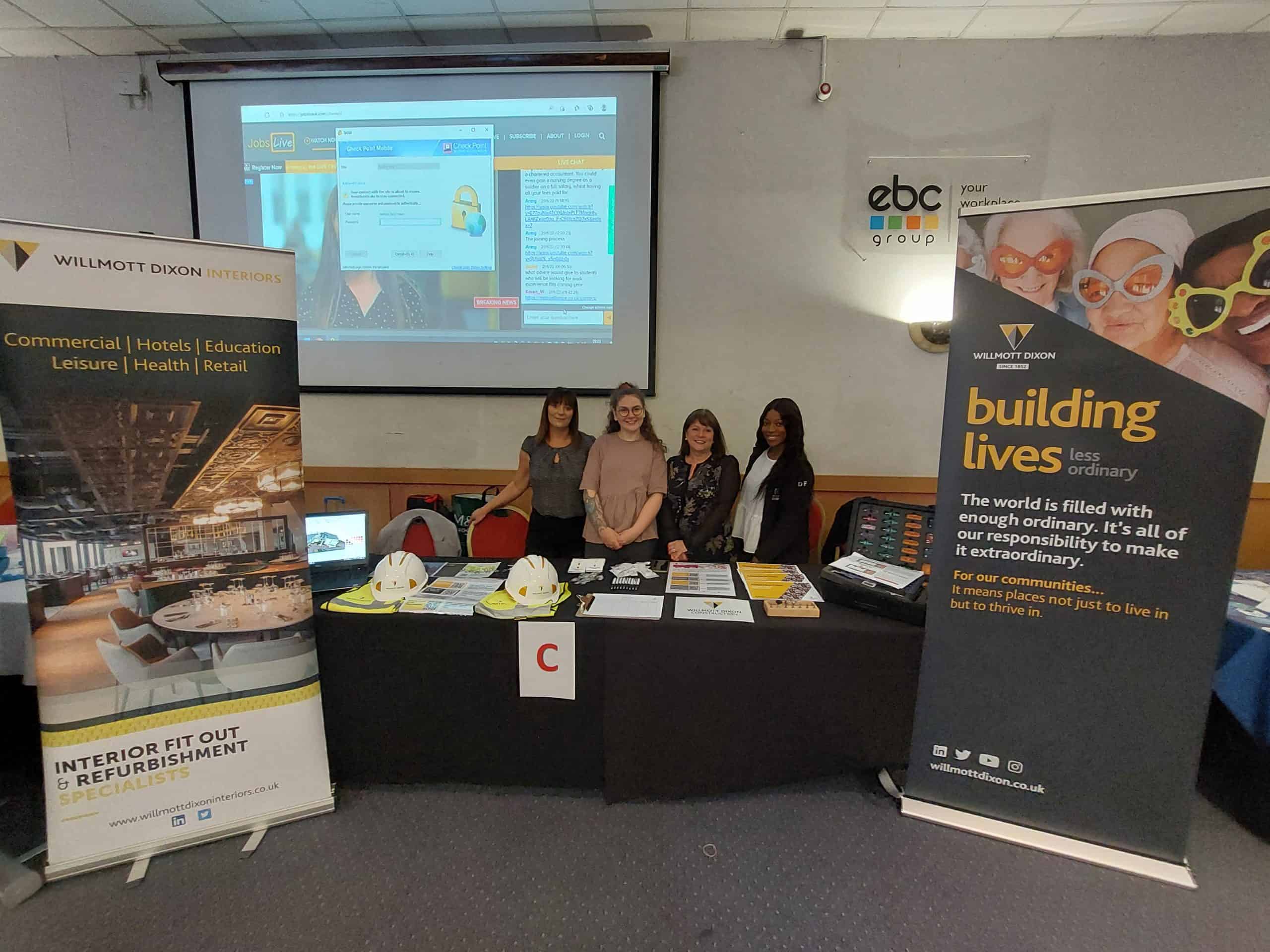As work paused on many building sites during the early weeks of the first lockdown in April 2020, so too did parallel projects in local communities.
Our social value teams were unable to deliver community projects in person and had to adapt and change to deliver a social return on investment for our customers.
Jayne Anderson, social value manager at Willmott Dixon Interiors explains how we have since embraced Google Classroom and virtual mentoring. And why we are continuing to adapt our approach.

Innovation at social value ‘happy hour’
Jayne Anderson is one of four founding members of Willmott Dixon Interiors’ team in the Midlands and North.
More than 80 employees now operate between the company’s regional offices in Leeds and Birmingham, thanks to the delivery of a series of major fit out and refurbishment projects for public and private sector customers.
Jayne has achieved two promotions since joining the company’s social value team at the turn of 2020 and is now social value manager for the region.
“One of the huge plusses to have come out of the pandemic is the innovation and collaboration it has since inspired. We set-up a ‘happy hour’ for employees across the Group to share social value experiences and ideas. We began to look at what we’d already delivered that could be adapted for a virtual audience.”
Building online social value
Jayne was part of the team that delivered Willmott Dixon Interiors’ first virtual work experience programmes to students aged 14-19 years – part of the Group’s Building Lives initiative.
Using Google Classroom – and accessed via Speakers for Schools – the five-day programmes were aimed at young people keen to learn more about careers in construction, while developing their employability skills.
Despite the shift to a virtual environment, programmes were oversubscribed by 52%, demonstrating the strong demand for educational and work experience activities during the pandemic.
Jayne said: “We asked students to design a £30 million school, using specialists from the business to help them consider things like costing and planning. They had to devise a name for their business, look at environmental factors and draw their final design – each one was presented to a panel at the end of the week.”
Students were enlightened as to the range of roles available in construction. More than 90% of almost 50 participants said they felt more prepared for work and 100% said they would recommend the programme to a friend.
It wasn’t only the young people whose confidence was buoyed by the experience.
“We were learning on the job to a degree and had to pull together a week’s worth of activities, slides, scripts and deliver it all virtually,” adds Jayne. “I’d never even used Teams before, let alone Google Classroom, so we were nervous at the start. But we soon got the hang of it and colleagues from different regions began joining us online to see how we did it, so they could apply it to their own region.”
Virtual programmes for jobseekers
The virtual revolution didn’t stop there.
Virtual ‘Mentoring Circles’ programmes were devised and delivered in collaboration with the Department for Work and Pensions, which offered careers guidance and life skills to unemployed people.
Three-week virtual sessions were delivered to jobseekers in Birmingham and the Black Country, achieving a social return on investment of more than £31,000.
Jayne said: “The programme was delivered alongside our projects at Wolverhampton Civic Halls and Brindleyplace. As well as CV and interview prep, we also encouraged participants to take part in personal branding sessions, where they were asked to think and speak about themselves in a positive light. Customers told us that the sessions helped them to grow in confidence and our people have benefited from being mentors.”

The return of face-to-face delivery
As coronavirus restrictions have lifted, so face-to-face delivery has returned.
It has posed a different challenge to members of Willmott Dixon Interiors’ social value teams, who have been tasked with refreshing their presentation and facilitation skills for a physical audience.
One of the latest initiatives has seen Jayne and the team develop new partnerships with HM Prison Leeds and HMP New Hall in Wakefield, which has led to programmes such as ‘routes into construction’ for female inmates.
Jayne says: “Prisons were one of the last places we were able to engage with as Covid made things problematic and many of the inmates weren’t vaccinated. We have also had to be aware that some participants have mental health issues, so we have tailored our delivery to their needs. For instance, we know that people with ADHD need to be busy and active, so we focus on lots of engaging, practical activities.”

The future of social value?
The range of social value activities delivered by Willmott Dixon Interiors continues to expand and evolve.
The contractor has planted more than 2,600 trees at locations close to its construction sites in Leeds, London and the West Midlands, thanks to an innovative partnership with leading nature charity, The Conservation Volunteers.
Its involvement in the government’s Kickstart Scheme has also delivered successful 6-month work placements for 16-24 year olds at risk of unemployment.
More recently Jayne has been invited to deliver programmes which perhaps give a glimpse of how – at least some – social value activities will be delivered in the future.
“Schools have invited us back in to deliver hybrid programmes, combining virtual and in-person delivery,” says Jayne. “It shows that many of the skills we’ve learnt in the past few years will continue to be relevant in the years to come. Whether we deliver digitally or in more traditional ways, we know we can adapt to suit the needs of our communities and provide social value activities that leave a lasting, positive legacy.”
